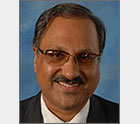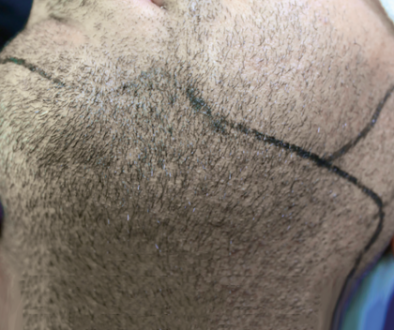Should Prospective Hair Transplant Patients Undergo a Psychological Screening Prior to Surgery?
The following response, posted on our Hair Loss Social Community and Discussion Forums was written by recommended hair restoration surgeon Dr. Tejinder Bhatti:
I’m curious as to what you think about the extent hair restoration physicians should go to in order to accurately determine if someone is psychologically suited for a hair transplant or not. Are there any doctors that have some sort of protocol in place to reach such a conclusion? Or is it based on a gut feeling?
Way too frequently, I see guys coming on hair loss forums in a state of panic/distress/depression following a procedure, and it seems that more often than not, their concerns aren’t valid. They panic if they don’t have a full head of hair within the first 2-6 months, and can’t understand why they look worse than they did before, they think they made the worst decision of their lives, they feel like all hope is lost, etc.
 This is a very good subject but one that is very difficult to answer easily. I believe that, as medical professionals, we have a responsibility to do no harm (which is one reason I ceased performing follicular unit strip surgery or FUSS). One of the ways we can “do no harm” is to deny cosmetic surgery to those that may not be able to handle the emotional toll it can inflict because in the long term the procedure may cause more problems than it solves by putting the patient into a state of despair that is not easily resolved. FUSS can create this issue by the mere presence of the donor scar regardless of how excellent the result is. Bad hair growth only compounds the issue and in the case of follicular unit extraction (FUE), even without the linear scar, bad growth can decimate one’s emotional and psychological well being. Patients get a hair transplant to look better and when they believe this is not going to be the end result, or worse, they believe they are having a negative result, everyone loses.
This is a very good subject but one that is very difficult to answer easily. I believe that, as medical professionals, we have a responsibility to do no harm (which is one reason I ceased performing follicular unit strip surgery or FUSS). One of the ways we can “do no harm” is to deny cosmetic surgery to those that may not be able to handle the emotional toll it can inflict because in the long term the procedure may cause more problems than it solves by putting the patient into a state of despair that is not easily resolved. FUSS can create this issue by the mere presence of the donor scar regardless of how excellent the result is. Bad hair growth only compounds the issue and in the case of follicular unit extraction (FUE), even without the linear scar, bad growth can decimate one’s emotional and psychological well being. Patients get a hair transplant to look better and when they believe this is not going to be the end result, or worse, they believe they are having a negative result, everyone loses.
During consultations we have to use our very limited amount of time with the patient to spot any issue that may indicate something is amiss. In my clinic, however, I choose to use this time to get to know the patient as well as I can for the general well being of the patient and the success of their procedure. By establishing a positive rapport we can influence the overall tone of the post-operative process. This is one reason why I do all of my own consultations as well as pre-operative and post-operative interactions. I try to have a relationship with the patient and with thorough education before, during and after the procedure we can greatly reduce the incidence of despair even in those that may have originally had misconceptions about the timeline for growth.
These issues arise when patients are left alone after surgical hair restoration and have no one to reach out to so they rely on photos of other patients to judge their own success, for better or for worse. I feel this is wrong and it is why we see some patients panicking well before it is necessary to do so.
Dr. Tejinder Bhatti
—-
David
Editorial Assistant and Forum Co-Moderator for the Hair Transplant Network, the Coalition Hair Loss Learning Center, and the Hair Loss Q & A Blog.
To share ideas with other hair loss sufferers visit the hair loss forum and social community.
Technorati Tags: hair transplant, hair loss, follicular unit strip surgery, FUSS, hair growth, follicular unit extraction, FUE, hair restoration



